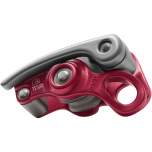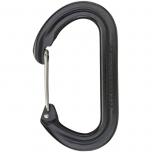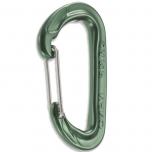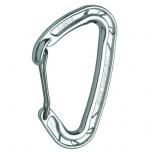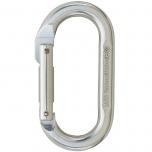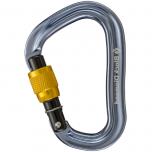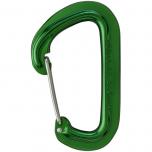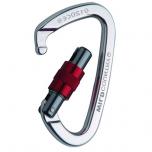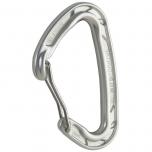I'm biased because I prefer multi-pitch climbing to single-pitch climbing
This device initially caught my attention because of the weight (light), price (cheaper than competitors), no plastic bits (less wearing), size (it's small!).
In use, I found it's really smooth to take in slack and it seems to catch a fall in the same way a GriGri does (literally in the camming mechanism and also in the user experience). Everything happens pretty quick and a dynamic belying skill is helpful. Fat ropes and light climbers definitely mean you have the device almost completely open to lower at a slowish speed.
I really do love that this is a small device and I can use it with an offset D for a super light setup. If weight is your top priority, this is one of the best mechanical brake assist options. (If you go non-mechanical, Edelrid's Jul2 or MegaJul are great super light brake assist options options).
I would give it 5 stars but...
- .5 star for a lack of slack collection while using in guide mode (a method most climbers probably won't use... I used guide mode while multi-pitch climbing and simul-rappelling in Mexico).
- .5 stars for lowering (really, the lowering is pretty similar to the Petzl GriGri, which I'm not a huge fan of either. With constant use, you'll become more comfortable and gain more control of the lowering, but for me I feel like I can regulate a larger range of rope diameters in a smoother fashion with a tuber. Aside: For a mechanical brake assist device the Trango Vergo has some of the smoothest lowering I've tried (I haven't tried the CAMP Matik yet that has an extendable handle for more control).
Note: Unlike the CAMP Matik and GriGri + (coming 2017), the Lifeguard does not have a safety backup/cam re-engagement if the handle is jammed back in the full throttle open mode by a [scared] climber. There is also no cam override mechanism for feeding slack quickly.

